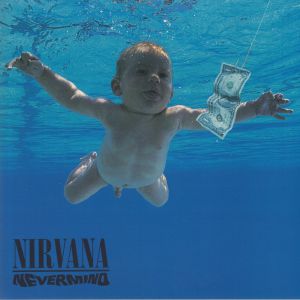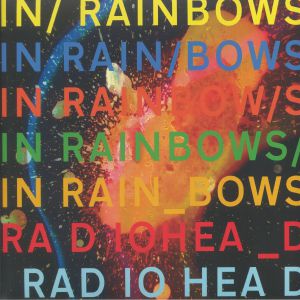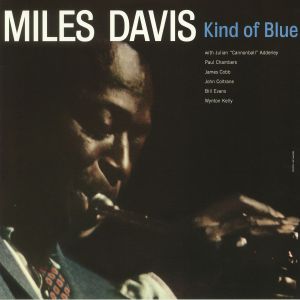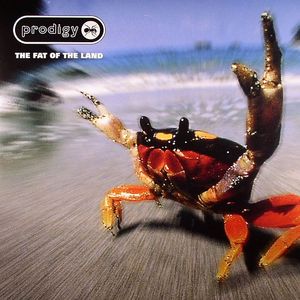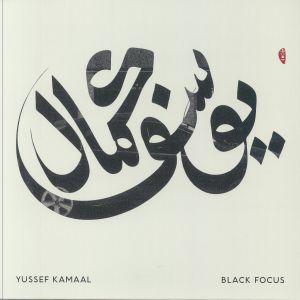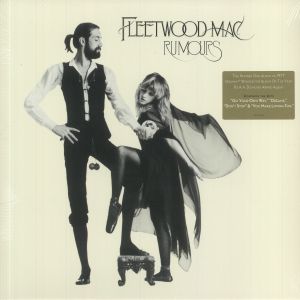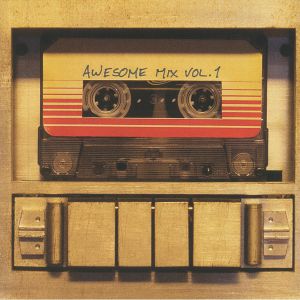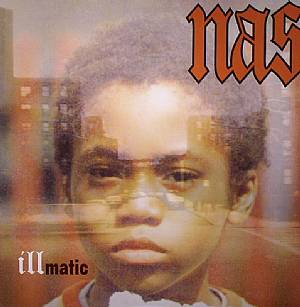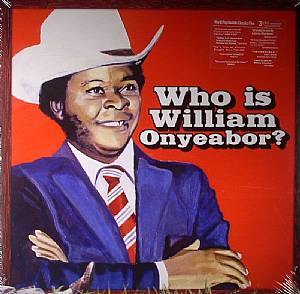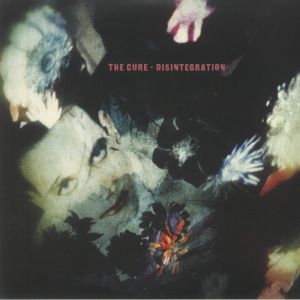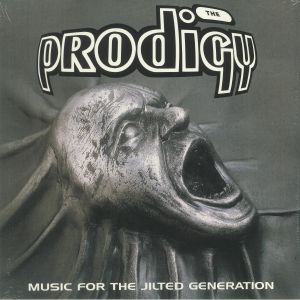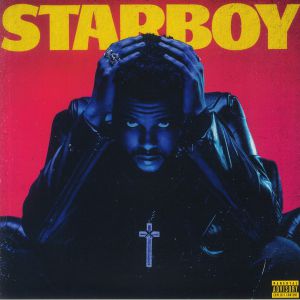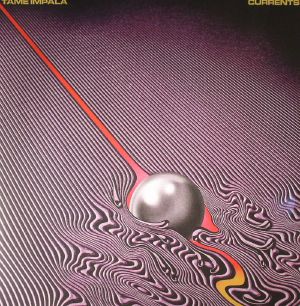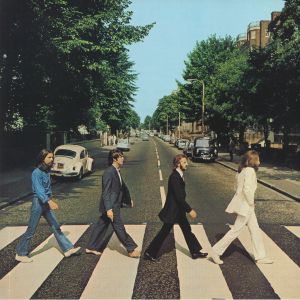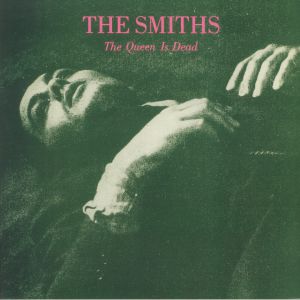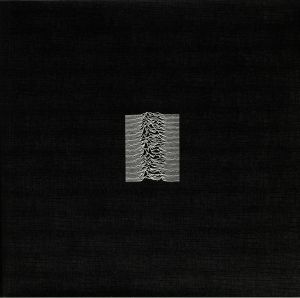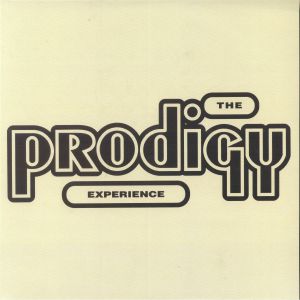All genres charts
Bestselling All genres vinylReview: In line with the timely reappraisal of all things R&S related, the resurgent Apollo have seen the opportunity to bring one of their most celebrated records back for another round. Aphex Twin's ambient recordings mature magnificently with age, sounding ever richer and more emotive as the rest of electronic music continues to play catch up all around. From the gentle breakbeats of "Xtal" to the aquatic techno lure of "Tha", the airy rave of "Pulsewidth" to the heartwrenching composition of "Ageispolis", every track is a perennial example of how far ambient techno could reach even back then. It's just that no-one quite had the arm-span of Richard D. James.
… Read morePlayed by: DJ Mau Mau, Konnekt [De:tuned], John Karagiannis & PayLipServic, Will Azada (Proper Trax), Joachim Spieth, Charlton, Rising Sun, Juno Recommends Leftfield, Juno Recommends Experimental, Shadow Dancer (Boysnoize Records), Dmitry Distant, Juno Classics, Unbroken Dub, Ali Renault, Nowicki, Fantastic Man, Cromby, Rupes, Nathan Barato, Sacha Mambo (Macadam Mambo), MRSK, Soul Intent, Sam Silva - Plector Records, Juno Recommends Ambient/Drone, Howling, Myles Serge, Erell Ranson, Aphex Twin
… Read more in stock $25.71
in stock $31.08
Review: The last ten years have seen no shortage of bands with their delay pedals set to stun intent on capturing an aura of dreamlike radiance. Yet Texas 'pop-noir' troupe Cigarettes After Sex are no ordinary shoegazers, for a variety of reasons - frontman Greg Gonzalez' androgynous and dulcet tones may be part of the appeal, yet moreover it's the quality of the songwriting here, which never falls prey to the style-over-substance traps of their peers. Indeed, this debut is more than enough to justify the considerable hype around this outfit, being a collection of ditties as sultry as they are atmopsheric.
… Read morePlayed by: Sock Free Hideaway
in stock $25.43
Played by: Juno Recommends Funk, Suonho
in stock $30.50
MTV Unplugged In New York (remastered) (180 gram vinyl LP)
Cat: GEF 24727. Rel: 21 Feb 13
Indie/Alternative
in stock $25.14
15 Step
Bodysnatchers
Nude
Weird Fishes/Arpeggi
All I Need
Faust Arp
Reckoner
House Of Cards
Jigsaw Falling Into Place
Videotape
Review: "In Rainbows", Radiohead's seventh album, finally gets a physical release! It's one thing downloading this landmark album, but to actually hold this is something special. Not only do you get increased sound quality, but you also get the amazing artwork from Stanley Donwood. This album includes "Nude", a live favourite for many years that was originally written during the "OK Computer" sessions. More minimal that their "Kid A" period, "In Rainbows" does something that very few albums have done - its sound is distinct from previous Radiohead albums, but is still clearly Radiohead. Hail to the kings, they are back on top form.
… Read more in stock $30.50
in stock $26.55
Played by: Juno Recommends Jazz, Agogo Records
in stock $14.69
in stock $26.84
Played by: Valique, Juno Recommends Rock/Indie
in stock $25.43
in stock $30.50
Review: Brownswood Recordings has high hopes for this debut album from the previously unheralded Yussef Kamaal, which brings together hyped producer Kamaal Williams (AKA Henry Wu) and fast-rising Afrobeat drummer Yussef Dayes. With such talent to draw on, you'd expect Black Focus to be rather good. Happily, it is, with the duo delivering a typically London-centric take on jazz funk. That means that they take as much inspiration from the work of Kaidi Tatham as, say, Herbie Hancock. The key to the album's success - and, yes, it is generally as special as Gilles Peterson suggests - is the fluid combination of Dayes' brilliant drumming and Williams' superb synth solos and effortlessly groovy Rhodes playing.
… Read morePlayed by: Owen Jay, JimmyTheTwin, Aroop Roy, Alex Attias, Manu Archeo, Tropical Fever, RUSTAM OSPANOFF., Ourra, Replika | Common Mode, M//R, Cro, Thatmanmonkz (Shadeleaf Music), Lay-Far, Lexis (Music Is My Sanctuary), Session Victim, Juno Recommends Jazz, JKriv (Razor-N-Tape), Roman Rauch, NICOLA CONTE, WotNot Music, Harvey Sutherland, Bodhi, Z Lovecraft, Ishmael, Sameed, Coeo, Tomasz Guiddo, Orphidal, Dave Aju, ReeKee (Wrong Notes), DJP (Soul Print Rec), 4004 , Long Island Sound, Francesco Rossini, Secretsundaze, Nicky Soft Touch, Neon Finger
… Read more in stock $22.04
Played by: Osmose
in stock $28.25
in stock $30.50
Review: Originally issued back in 1998, Mezzanine remains the most commercially successful album released by Bristol troupe Massive Attack, thanks in no small part to the Liz Fraser-featuring "Teardrop". This third album signalled a change in sonic direction that played more explicitly on the darkness and tension that was always an undercurrent of their much loved debut Blue Lines and successor Protection. After numerous bootlegs over the years, Virgin have done the right thing and presented this official reissue of Mezzanine to appease fans of Massive Attack and it's clear the LP has lost none of it's bewitching power. The Quincy Jones and Isaac Hayes sampling "Exhange" and "Exchange" remain a delight in particular.
… Read morePlayed by: Manu Archeo, Juno Recommends Downtempo, Juno Classics, Jay Hill, Dr Meaker, Radiocuts, Dynamite Cuts
in stock $42.09
Review: Inspired by the slightly unlikely collision of the Thai music of the '70s and The Shadows, Khruangbin - the name means 'aeroplane' in Thailand - are purveyors of a deliriously mellow and beguiling form of jammed-out power-trio guitar music - far removed from standard notions of psych and dreampop, partly owing to its pan-global influences, its nonetheless both psychedelic and dreamy, not to mention possessed of an unhurried, reflective and spacious lilt that renders this Texan-London outfit a rare treat in an information-saturated age, taking on delicate soul and funk with exotic atmospheres and making the journey feel both blissful and effortless.
… Read more in stock $25.43
The Wall (remastered) (gatefold 180 gram vinyl 2xLP)
Cat: 509990 2988313. Rel: 23 Feb 12
Progressive Rock
in stock $51.42
In The Court Of The Crimson King (remastered) (200 gram super heavyweight vinyl LP)
Cat: KCLP 1. Rel: 19 Oct 10
Progressive Rock
Played by: Juno Recommends Rock/Indie
in stock $24.30
Review: There's a reason that Massive Attack's Blue Lines frequently appears in "greatest albums" lists. To put it simply, it's brilliant, and arguably remains the Bristol-based outfit's finest work to date (though some would argue that the dark and paranoid Mezzanine is possibly better). As this weighty vinyl reissue proves, it's lost none of its hazy, dub-propelled trip-hop charm. All-time classics such as "Unfinished Sympathy", "Safe From Harm" and "Hymn of the Big Wheel" have lost none of their soulful, mood-enhancing brilliance, while lesser celebrated cuts such as "Five Man Army" and "Lately" still sound great despite their vintage.
… Read more in stock $29.37
VARIOUS
Cat: 005008 7316419. Rel: 12 Feb 15
Soundtracks
Played by: Juno Recommends Experimental, Juno Best Sellers 2016
in stock $32.49
in stock $30.50
Played by: Juno Recommends Rock/Indie, Juno Classics
in stock $24.02
in stock $25.43
in stock $22.32
(What's The Story) Morning Glory? (remastered) (trifold heavyweight vinyl 2xLP)
Cat: RKIDLP 73. Rel: 21 Jun 22
Indie/Alternative
Played by: Juno Recommends Rock/Indie
in stock $38.15
Review: In 2015, Texas & London-based trio Khruangbin's debut album 'The Universe Smiles Upon You' garnered wide critical acclaim and captured attention for its seamless genre-blending and internationally shaped sound - one that evidently has deep roots in Thai-funk cassette culture. Similarly to their debut, sophomore record 'Con Todo El Mundo' is a cocktail of largely instrumental surf-rock, afro-funk, middle-eastern and far-eastern influences, mixed with warmth and soul. As if their pallette wasn't diverse enough, the additions of the pared back boogie on 'Evan Finds The Third Room', the widescreen dream-pop of 'A Hymn' and deeply intricate writing of closer 'Friday Morning', are illustrative of a band who have worked hard to broaden their horizons while keeping their roots in mind and, despite transatlantic bases, clearly remain a stunningly cohesive and well-matched outfit.
… Read more in stock $25.71
OK Computer OKNOTOK 1997 2017 (gatefold 180 gram vinyl 3xLP + MP3 download code)
Cat: XLLP 868. Rel: 23 Jun 17
Indie/Alternative
Review: Twenty years ago it sounded like an oddly poignant evocation of pre-millennial tension. Two decades later it stands as an eerily prescient glimpe into the technological alienation and dislocation of of a new era. Yet more importantly, OK Computer is no more or less than a sparkling, dramatic and moving collection of songs that haven't lost any of their impact in the interim. The sound of a band stubbornly refusing to follow up the stadium-strafing stylings of its predecessor The Bends - and instead bursting headlong into experimentation and wild creativity -is portrayed in still more vivid colours by the alarmingly strong collection of out-takes and B-sides collected herein, Yet there's no getting away from the chill and spark that marked out OK Computer from everything surrounding it in the post-Britpop malaise, and continues to do so in the pre-Brexit counterpart.
… Read more in stock $35.60
! low stock $26.28
in stock $33.89
Review: Madvillain is the collaboration of the most dynamic duo from today's hip-hop underground, MF Doom and Madlib. "Madvillainy" has witty, mental lyrics combined with rugged beats fashioned from every possible source material, resulting in a truly unique album pointing the way to hip-hop's future.
… Read more in stock $33.89
in stock $38.15
World Psychedelic Classics 5: Who Is William Onyeabor? (gatefold 3xLP)
Cat: RT 54/8089900791. Rel: 21 Oct 13
International
Review: Following 2012's fourth volume that celebrated the existential work of Tim Maia, here we find Luaka Bop exploring the legacy of William Onyeabor. A high chief and Kenyan diplomat who allegedly refuses to discuss his music, he self-released eight albums in the 70s and 80s and these are some of the many highlights. Stretching from the New York-influenced post-punk synth funk of "Good Name" to the most authentic Afro fusion of "Why Go To War", Onyeabor's range not only reflects his clear creative skill, but also the ever-developing international language of music during the fruitful period he was active. Who is William Onyeabor? Press play and find out yourselves...
… Read morePlayed by: Scratchandsniff, Andrew Pirie (Melting Pot), Djouls (Paris DJs), Powlo Thirsty Ear, Charles Maurice, Felix Dickinson, Dicky Trisco, Lawrence Le Doux, Sito / / Mischio Dischi Disco, Manu Archeo, AfroBase (Radio Chart), RUSTAM OSPANOFF., Eamon Harkin, Mister Saturday Night, Bradley Lucke, Curt J, Ksoul, Ionik (Traveller Records, KGS), Mop Mop, Dusty / Jazz & Milk, Adam isbell -Racubah Sound System, Kisk, Andrew Allsgood (Free Association), Voodoocuts, Patrick Forge, Horton Jupiter, Far Out Recordings, Pushin Wood (Bambeats), Session Victim, Juno Recommends Funk, Riccio, Marsman, Damon Martin (Disco Bloodbath), Eddie C, Amen Brother Disco Band, Afro Beat Foundation, Daniel Nellstrum O'Bongo, Juno Classics, JKriv (Razor-N-Tape), Your Name (Legalize Lambada), Alien Disco Sugar / Leonidas DeeJay, Sccucci Manucci, Mitchell Goor, DJ ROCCA, Dam Swindle, Hugo Mendez, Alan Dente, Pedestrian, DJ Kobayashi, Guillaume Metenier (Gee Recordings), Chesney, Freddie Norwood, Francesco Rossini, Bal 5000
… Read more in stock $40.97
My Beautiful Dark Twisted Fantasy (trifold 3xLP + poster + artwork in die-cut sleeve)
Cat: B 001469501. Rel: 22 Aug 14
Hip Hop/R&B
Played by: Juno Recommends Hip Hop/R&B, I Love Hip Hop
in stock $53.96
Disintegration (remastered) (gatefold 180 gram vinyl 2xLP)
Cat: 5324563. Rel: 20 May 10
Indie/Alternative
Played by: Ron Like Hell
in stock $41.54
Greatest Hits (reissue) (half speed remastered) (gatefold 180 gram vinyl 2xLP)
Cat: 570484 1. Rel: 25 Nov 16
Rock
! low stock $39.27
No Good (Start The Dance)
in stock $30.50
in stock $36.15
Played by: Juno Recommends Rock/Indie
in stock $25.14
in stock $40.11
Review: Australian combo Tama Impala has always been hard to pin down, with their two studio albums to date displaying a keen desire to capture a trippy, psychedelic vibe, whilst refusing to settle on one easy-to-categorize sound. Currents, their fourth album, continues this trend, toning down some of the psychedelic rock elements in favour of nods to blue-eyed soul, woozy dream-pop, cheery summery pop (see the radio hit in waiting "The Less I Know The Better"), and even the head-nodding rhythms of hip hop (which, incidentally, prove the perfect backing for the morphine pop wooziness of "Past Life"). It's a blend that re-casts the band as baked, inter-dimensional travellers with a neat line in enveloping, sun-kissed downtempo pop.
… Read more in stock $24.86
in stock $23.45
Played by: JKriv (Razor-N-Tape), I Love Hip Hop
! low stock $27.69
Review: There's a chance this Liverpudlian four piece will be familiar by now. This, their 11th studio outing, first unveiled as the 1960s slipped into the 70s, is a bonafide epic from an outfit that weren't lacking in epics; in many ways a culmination of their time together, marking the end of their active years and beginning of their legacy. By this stage, then, they've emerged from years spent on the inner journey and time on the outer, space cadeting to the hallucinogenic fuelled tones of "Sgt. Peppers" and "Revolver". Of course, there's still plenty of explorations happening, but the gritty blues rock of opening track "Come Together" really sets the tone. Five decades on, it still sounds great and maybe even better than you remember. Even if you own the original, this anniversary edition is worth having.
… Read morePlayed by: Juno Recommends Rock/Indie
in stock $31.08
Review: Of all DJ duos currently operating in British dance music, Belfast boys Bicep might be the hardest to pin down (Optimo aside, of course). Certainly, this debut album is not easy to pigeonhole, though it is an enjoyably cohesive listen. This is largely down to two factors; the frequent use of deliciously colorful and loved-up synthesizer parts, and the duo's innate ability to utilize beats tailor-made for dancefloor devastation. So while keen dancefloor historians may notice sly (and not so subtle) nods to '89 rave, U.S house and garage, Italo-disco, late '90s progressive house, jungle and early British hardcore, the album never sounds anything less than a fine set of Bicep tracks. Expect it to be one of the biggest albums of the year.
… Read more in stock $28.53
Played by: Bruno Pronsato
in stock $25.43
Review: He's taken his time, but finally Norwegian nu-disco legend Todd Terje has delivered a debut album befitting his immense talents. While there are plenty of examples of his vibrant, synth-heavy dancefloor style on It's Album Time - see "Delorean Dynamite", "Inspector Norse", "Strandbar" and the Lindstrom-ish grandiosity of "Oh Joy" - what really makes it such an essential set are the curious turns and oddball moments. Samba, jazz and easy listening get the Terje treatment on "Alfonso Muskedunder", "Leisure Suit Proben" and "Svensk Sas", while there's a welcome dose of wide-eyed Balearica on the tweaked "Swing Star" (one of a string of previously released cuts on the album). Most interesting of all, though, is "John & Mary", a woozy, Roxy Music style cover of a Robert Palmer classic featuring the effervescent Bryan Ferry.
… Read morePlayed by: Marco Gallerani, Magic Island DJs, Dr Rubberfunk, Matt Long (FINA Records/mono_cult), Manu Archeo, RUSTAM OSPANOFF., Eamon Harkin, Mister Saturday Night, Smoove, Jay Shepheard, Faze Action, Martin Haberland, Horton Jupiter, Jimmy Maheras, Juno Recommends Disco, Struboskop, Phil Horneman (Wicked Jazz Sounds), Jorge Caiado / Conversion, I Love Disco!, Ray Mang, Alien Disco Sugar / Leonidas DeeJay, Cyclist, Dynamicron (Los Grandes/Our Nights), Alan Dente, Cermakk (Cherries Records)
… Read more in stock $28.53
Unknown Pleasures (remastered) (180 gram vinyl LP)
Cat: 082564 6183906. Rel: 25 Jun 15
Indie/Alternative
Review: What is left to be written about the debut Joy Division album that hasn't been written already? Well, not much except to say if you've never heard it, you must. This is the more raw of the two studio albums, powered mainly by the foundations laid down by bassist Peter Hook and drummer Stephen Morris. But although the rudimentary electronic experimentalism of its successor Closer are missing - with the possible exception of 'She's Lost Control' - Martin Hannett's production job creates an uneasy world of magical reverbs and echoes that lure in the listener. From its iconic, Peter Saville sleeve to classic songs like 'Shadowplay' and 'Interzone' - which started life as a cover of Nolan Porter's Northern Soul cult hit 'Keep On Keeping On' - this is the template that effectively launched a thousand bands, from indie and post punk to goth and beyond.
… Read morePlayed by: MUSHROOMS PROJECT
in stock $27.69
Intro
VCR
Crystalised
Islands
Heart Skipped A Beat
Hot Like Fire (bonus track)
Fantasy
Shelter
Basic Space
Infinity
Night Time
Stars
Played by: Girls Of The Internet, Lexx, Sean Brosnan, Far Out Recordings, Far Out Recordings, Toki Fuko
in stock $25.43
in stock $30.50

 USD
USD







